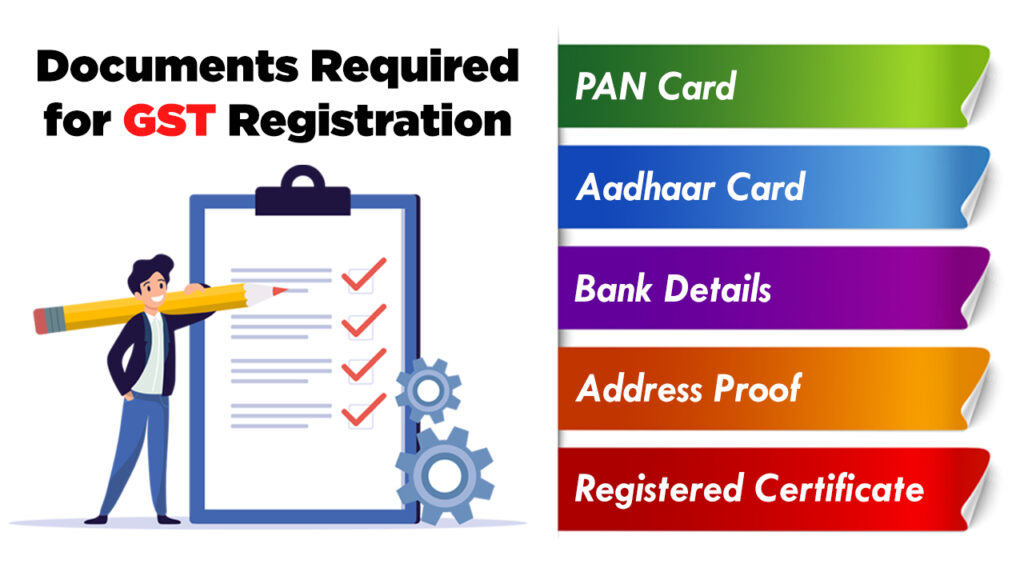Browsing the Intricacies of GST Enrollment: A Comprehensive Guide for Entrepreneur
Browsing the complexities of GST registration can be a challenging job for lots of local business owner, as it entails a myriad of rules, guidelines, and processes that have to be stuck to. With the ever-evolving landscape of tax legislations, making certain compliance and understanding the complexities of GST registration is crucial for the seamless operation of any type of organization. From figuring out eligibility and gathering the required paperwork to maximizing procedures for maximum performance, this detailed guide aims to supply organization owners with the knowledge and tools needed to navigate the intricacies of GST enrollment efficiently.
Eligibility for GST Enrollment
Organization owners should satisfy certain standards to establish their qualification for GST registration. In basic, companies with an annual turnover surpassing a specific limit are called for to sign up for Product and Solutions Tax Obligation (GST)
Furthermore, organizations that are signed up under any previous tax obligation regimen, such as Barrel or service tax obligation, are commonly needed to transition to GST enrollment. By adhering to the necessary standards, services can efficiently browse the complexities of GST registration and operate lawfully within the tax obligation framework.
Records Needed for Registration
To complete the GST enrollment procedure, organizations need to collect and send a comprehensive set of papers. The key files required for GST registration commonly consist of evidence of business registration or incorporation such as the Certificate of Consolidation, collaboration action, or any type of various other registration certification.
Additionally, certain records associated with the nature of business, such as a checklist of solutions or items provided, HSN codes for items, and cavity codes for services, might be required - Why choose CFO Account & Services for GST registration in Singapore. It is critical for organizations to make certain that all records sent are precise, updated, and in the recommended layout to stay clear of any kind of delays or problems in the GST registration procedure
Process of GST Enrollment
Having actually put together the requisite documentation, services proceed to launch the GST enrollment process by involving with the online site designated for enrollment. This on the internet portal is the Product and Services Tax Obligation Network (GSTN) portal, which acts as the primary system for all GST-related activities in India. Upon accessing the site, businesses are called for to fill out the GST enrollment form with exact details concerning their company tasks, turnover, and various other relevant details.
When the kind is completed and sent on the portal, the GSTN confirms the information supplied by the business. If any kind of discrepancies are found, the candidate may be needed to give added details or clarification. Complying with effective verification, a GST registration certificate is released to the business entity. This certificate has a distinct Product and Provider Tax Recognition Number (GSTIN) that is made use of for all GST-related transactions.
It is essential for organizations to ensure that the information given throughout the GST enrollment procedure is accurate and up to date to prevent any potential issues or delays in obtaining the GST enrollment certification.
Recognizing GST Conformity

Companies need to be familiar with the numerous GST conformity demands based upon their turnover, nature of products or services, and the states in which they run. It is essential to stay updated on any modifications in GST regulations and guidelines to prevent any non-compliance issues.
Non-compliance with GST regulations can cause substantial penalties, charges, and even lawful consequences. For that reason, companies must spend time and page sources in informing themselves and their staff on GST conformity. Looking for expert assistance from tax obligation consultants or specialists can also aid in navigating the complexities of GST conformity and making sure that organizations run within the lawful framework.

Tips for Optimizing Business Operations
For enhanced performance and efficiency in company procedures, calculated planning and streamlined procedures are necessary elements. One tip for maximizing service operations is to leverage modern technology successfully (Why choose CFO Account & Services for GST registration in Singapore). Executing the right software program solutions can automate recurring tasks, enhance accuracy, and boost general process performance. In addition, performing routine performance evaluations and collecting comments from staff members can supply valuable understandings for identifying traffic jams and areas for renovation.
One more vital facet is prioritizing jobs based upon their significance and target dates. By creating a clear pecking order of jobs and establishing reasonable timelines, services can ensure that important tasks are finished on time. Additionally, promoting a culture of open interaction and collaboration among employee can bring about increased efficiency and advancement.

Final Thought
In final thought, browsing the intricacies of GST enrollment calls for a clear understanding of qualification standards, necessary documents, registration processes, and compliance requirements. By adhering to these guidelines and optimizing company operations, local business owner can ensure smooth operations and compliance with the go to this website GST regulations. It is important for companies to stay educated and updated on GST regulations to avoid any penalties or lawful concerns.
The vital records required for GST registration usually include proof of business registration or unification such as the Certification of Consolidation, partnership deed, or any various other enrollment certificate.Having assembled the requisite documents, organizations proceed to initiate the GST enrollment process by engaging with the on-line website assigned for registration. Upon accessing the site, services are required to load out the GST registration form with exact details regarding their Website business activities, turnover, and various other relevant information.
In order to keep adherence to GST laws and prevent penalties, services have to focus on recognizing GST compliance. By sticking to these guidelines and maximizing company procedures, organization owners can ensure smooth operations and conformity with the GST policies.